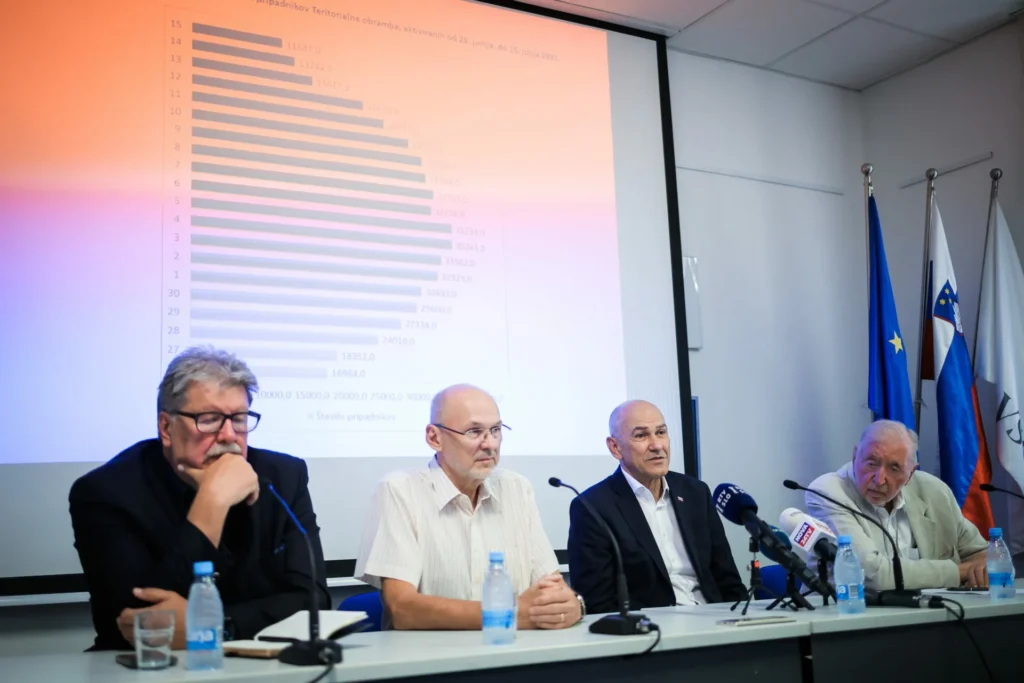“We don’t have defence because of NATO. We have defence or an army because of the need to defend our own homeland, our own country in the event of danger,” former Defence Minister and long-time President of the Slovenian Democratic Party (Slovenska demokratska stranka – SDS), Janez Janša, stressed at Tuesday’s press conference of the Association for the Values of Slovenian Independence (VSO), entitled ”The Question of National Security”, referring to the debate on how many battalion groups Slovenia can provide for NATO.
At the very beginning of the press conference, Janez Janša expressed his regret that Lojze Peterle, the President of the Association for the Values of Slovenian Independence, could not attend the conference due to his illness, as he, as the President of the first democratically elected government of Slovenia, would have highlighted an aspect that is not emphasised often enough during the celebration of the Statehood Day – namely, that at that time, it was not only important to defend ourselves, or to defend an independent state, but it was also important for this state to survive.
And with all these celebrations of Slovenian statehood, this aspect tends to be neglected again and again. “As those of you who are older will remember, there was a lot of talk at the time about how – if we became independent – we would eat grass, that Slovenia could not survive. Even some who were part of our government and then left it said that the Slovenian economy was so tied to Yugoslavian markets that Slovenia could not survive economically on its own,” Janša pointed out, recalling that in the run-up to independence, a lot of energy was devoted to preparing supplies, preparing for a situation where they could actually close many logistics chains, both to the south, the east and the west.
Preparations for independence were successfully carried out
According to Janša, it was Igor Bavčar who, as Minister of the Interior at the time, led the coordination of the preparations for concrete measures. At that time, they met with the leaders of the Slovenian economy. “They convinced us to a large extent that things were not so pessimistic, that there were supplies and that it was possible to do without the Yugoslavian markets,” Janša recalled, adding that it would be right for the President of the country, next year, when the anniversary of these events will be marked, to award a state decoration to those who at that time were responsible for our survival. “Despite the war that followed the declaration of independence, Slovenian shops never ran out of food. Nobody went hungry. We even took care of the five thousand prisoners of war we had. So that aspect was extremely well done.”
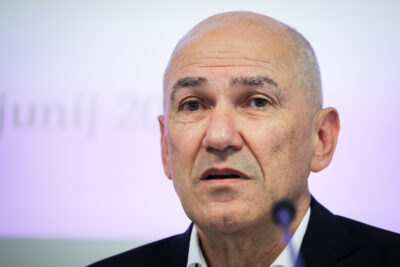
Given that the aforementioned debate on defence is focused on how to organise ourselves and how much money to spend to make Slovenia a safe country, Janša recalled that this debate was very lively and animated in the months before Slovenia gained its independence. He said that at that time, there were more problems about how to provide money for our own army and defence than about how to continue paying money for the Yugoslav People’s Army (YPA), which we knew would soon be our biggest adversary. Compared with today’s figures, it was a minimal amount of money then. “Nevertheless, Slovenia’s defence strength today is at a lower level than it was before Slovenian independence, and at a lower level than it was in 1994, when we were, in my estimation, the strongest militarily,” he stressed.
We don’t have defence because of NATO
Regarding the adoption of the defence resolution, which commits Slovenia to reach three percent of GDP for defence needs by 2030 and to provide up to ten thousand professional soldiers and up to 30 thousand reservists in the meantime, Janša pointed out that the resolution does not say how we will reach this number. The Slovenian Armed Forces currently have six thousand soldiers and one thousand members of the contractual reserve. According to Janša, the misrepresentation is due to avoiding the dilemma of re-establishing military training.
Janša believes that decision-makers in Slovenia should think about the fact that when they talk about huge billions for defence, they should put first what actually needs to be put first when it comes to the country’s defence strength, and that is the people. “It is pointless to discuss in parliament, at the Ministry of Defence and elsewhere, how many battalion groups Slovenia can provide for NATO. This is of secondary importance. We do not have defence because of NATO. We have defence or an army because of the need to defend our own homeland, our own country in case of danger,” he stressed, adding that it is true that we are part of NATO and that collective defence is always cheaper than individual defence, and that these obligations should also be taken seriously. But this is not the first priority, he said.
“So, decision-makers must first ask how to get to a situation where we can provide the number of combat-trained troops we need, and secondly how much money we need to do that.” In 1994, Janša said, we spent 1.7 percent of GDP on defence, which amounted to around 200 million euros at the time. Fifty thousand servicemen could be called up for arms. Now we are talking about two billion euros, and we have seven thousand people who can be called up to defend the homeland. “The discrepancy is enormous, and things are not going in the right direction,” Janša was clear.
Nothing would have happened without the first elections
Jelko Kacin, who was the Minister of Information during the war for Slovenia, said that on Statehood Day, there will be a lot of talk about the 34th anniversary, but he thinks it is necessary to talk about the 35th anniversary. “Without the first elections, there would have been nothing,” he was clear, adding that it should be stressed that we were preparing for our independence in an organised way. “An important element of this was to provide the conditions for military service for the first generation of Slovenian soldiers. In light of this, I would strongly recommend this government to look that much further ahead and start renovating the barracks so that, in the event of a need for universal conscription, we have somewhere to house conscripts and volunteers and then service them properly while they are undergoing intensive training for the defence of the homeland. This should be one of the priorities at the moment, if we start from the premise that the human being is the starting point.”
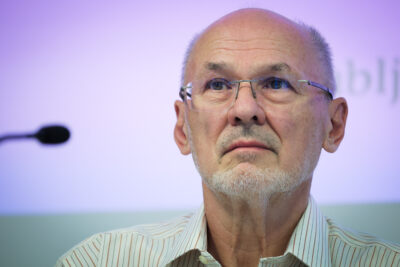
During the war for independence, it was Kacin’s duty to communicate about our independence, because, at that time, nobody supported us except neighbouring Croatia. Everyone was afraid of the collapse of the then-Soviet Union. “When we had achieved such a result in the plebiscite, and it was clear that we were going to implement independence, the Yugoslav People’s Army took the right to declare itself the guardian of the federation and to do everything in its power to prevent the independence of Slovenia and Croatia. That is why it has been trying all along to get the power to take over Yugoslavia, to carry out a coup d’état,” he pointed out, adding that the closest we came to this was in March, but that it was not so clear at the time. “That was when they called the Presidency of the Socialist Federal Republic of Yugoslavia and demanded the transfer of powers. There was no balance of power. Dr Drnovšek was not there either. The then Minister of Defence went to Moscow, seeking tacit support for a military coup. There, they said yes, conditionally, only after we take power and stop President Gorbachev, and the Yugoslav People’s Party lost that momentum, that terrible desire to take power right then,” he explained, adding that it intervened on the 26th of March 1991, and that was when, he said, the scenario of March 1991 began to unfold.
Regardless of what is being said today about this war, Kacin stressed that it was a real war. More than 70 people lost their lives in Slovenia. There were policemen, territorial soldiers, civilians, but also soldiers of the Yugoslav People’s Army on the other side, who outnumbered us by far. “In ten days, on the basis of the results achieved on the ground, we were transformed from an object of ridicule and humiliation into a subject of co-decision,” he stressed, recalling that we were sitting at the negotiating table. “On the basis of all this, the Yugoslav People’s Army only rationally concluded that this was not the way to go and that it had become inoperative,” he said, adding that they had decided to withdraw from Slovenia in order to salvage what could be salvaged. The Democratic Opposition of Slovenia – DEMOS, was strategically successful, he said, but unfortunately it dissolved prematurely because some people did not see beyond and did not see the opportunity to do certain things right from the start. “This still contributes to the fact that we do not understand the West in terms of civilisation, even though we are part of the West, and that in some places, the revolution is still going on, and that we cannot even bury the murdered Roma children in the most beautiful city in the world.”
We still have to build our own country
Igor Bavčar, the first Minister of the Interior in independent Slovenia, said that a number of solutions for the jump were being worked out within the government and partly outside, mainly in talks with the Slovenian economy. He admitted that there were many difficulties in doing so. “Even the ministers themselves, who were leading the individual working groups, had difficulties in formulating their own policies,” he said, recalling the dilemmas around federal customs duties and our own money. He praised the functioning of the civil service at the time, which he said was even more efficient than it is now. He said that building the foundations of the Slovenian state was not easy because of the environment in which it operated at that time. He said that at that time, we were isolated in our efforts. “I think it is important that we then partly compensated for the lack of building our own state system through the negotiations with the European Union. In those 31, 32 working groups, we were implementing European legislation and at the same time laying the foundations of the Slovenian state.”
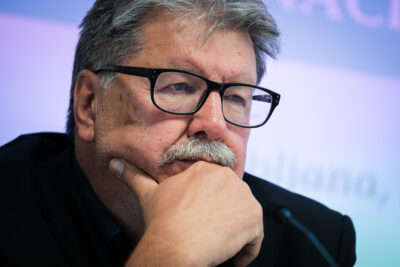
Bavčar believes that it will take some time to build a state of our own. “I think this is largely due to the fact that even today, when we look around this political space, we see that there is relatively little awareness of our own statehood in these political parties,” he stressed, adding that the point of cooperation between different politicians is not emphasised enough. Although politics is a power struggle, he said, there should be an awareness that “one’s own country is a point that concerns all politicians.”
Dimitrij Rupel, the first and long-serving Foreign Minister, stressed that security is provided by the army, but also by diplomacy. “We started practically from scratch. I do not think that the historical moment can be underestimated,” he stressed, recalling that the Cold War was over and that major changes were taking place everywhere. In Slovenia, they were even bigger than elsewhere. In Czechoslovakia, Poland, Rupel said, there were not as many starting problems as in Slovenia, but we were very successful and achieved our goals.
Rupel: Revolutionary degeneration has given way to international regulation
He pointed out that we know two systems of security: collective and national security. He recalled that former US Secretary of State Henry Kissinger wrote a book called World Order. “He linked these two systems (national and collective security) to Metternich and Bismarck,” he said, recalling that Kissinger’s role model was Metternich, who, after the disintegration of the French Revolution and the French national interest, also with the help of a French colleague, brought European countries together at the Congresses of Vienna and Ljubljana to form the European Concert Alliance. “Revolutionary degeneration had to give way to an international order which asserts international stability, solidarity, equilibrium.”
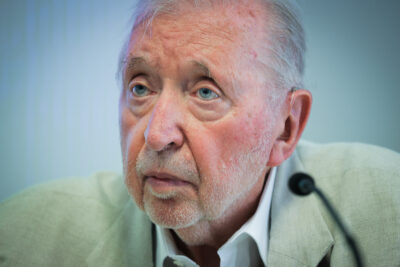
He also said that he agrees with historians who see a continuity between World War I and the end of the Cold War. It brought about the end of the Soviet Union, Yugoslavia, and the independence of many European countries. Awakened self-determination and national interests recognised the success of collective security organisations. “Slovenia initially took care of its own security, including with the help of Israel,” he pointed out, recalling that Russia had initially shown interest in Slovenia’s international position and that Austria had been a reliable ally. He went on to point out that our country had been involved in various collective security systems (UN, OSCE, EU, NATO), but that after 2008, these systems had suffered various negative blows.
“The EU has been taught a lesson by the US President that we have been enjoying a free ride. The accusation repeatedly made by Trump is unpleasant for Slovenia, which is indulging in left-wing prejudices regarding NATO, America, wastefulness, the military, weapons, etc.,” Rupel pointed out, adding that we need to ask ourselves how Slovenia will protect its national interests. In his opinion, we need an experienced, well-thought-out and Western-oriented foreign policy.
Ž. N.

